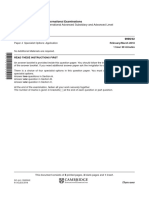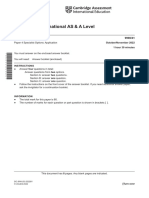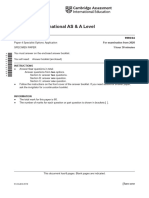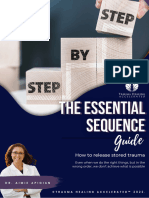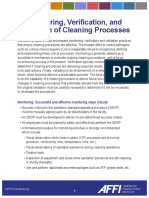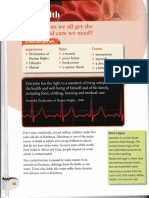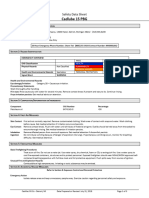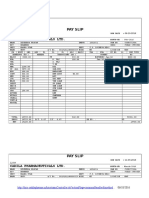0% found this document useful (0 votes)
70 views8 pagesFeb 2024 P4
This document provides information and questions for a psychology exam. It includes instructions, information about the exam format and sections, and 8 questions across 4 topic areas (Clinical Psychology, Consumer Psychology, Health Psychology, and Organizational Psychology). Students must answer 5 questions total, answering all questions from 2 different topic areas of their choice. The questions generally require explaining, describing, or outlining aspects of key studies and concepts.
Uploaded by
sarahalittttCopyright
© © All Rights Reserved
We take content rights seriously. If you suspect this is your content, claim it here.
Available Formats
Download as PDF, TXT or read online on Scribd
0% found this document useful (0 votes)
70 views8 pagesFeb 2024 P4
This document provides information and questions for a psychology exam. It includes instructions, information about the exam format and sections, and 8 questions across 4 topic areas (Clinical Psychology, Consumer Psychology, Health Psychology, and Organizational Psychology). Students must answer 5 questions total, answering all questions from 2 different topic areas of their choice. The questions generally require explaining, describing, or outlining aspects of key studies and concepts.
Uploaded by
sarahalittttCopyright
© © All Rights Reserved
We take content rights seriously. If you suspect this is your content, claim it here.
Available Formats
Download as PDF, TXT or read online on Scribd
/ 8










